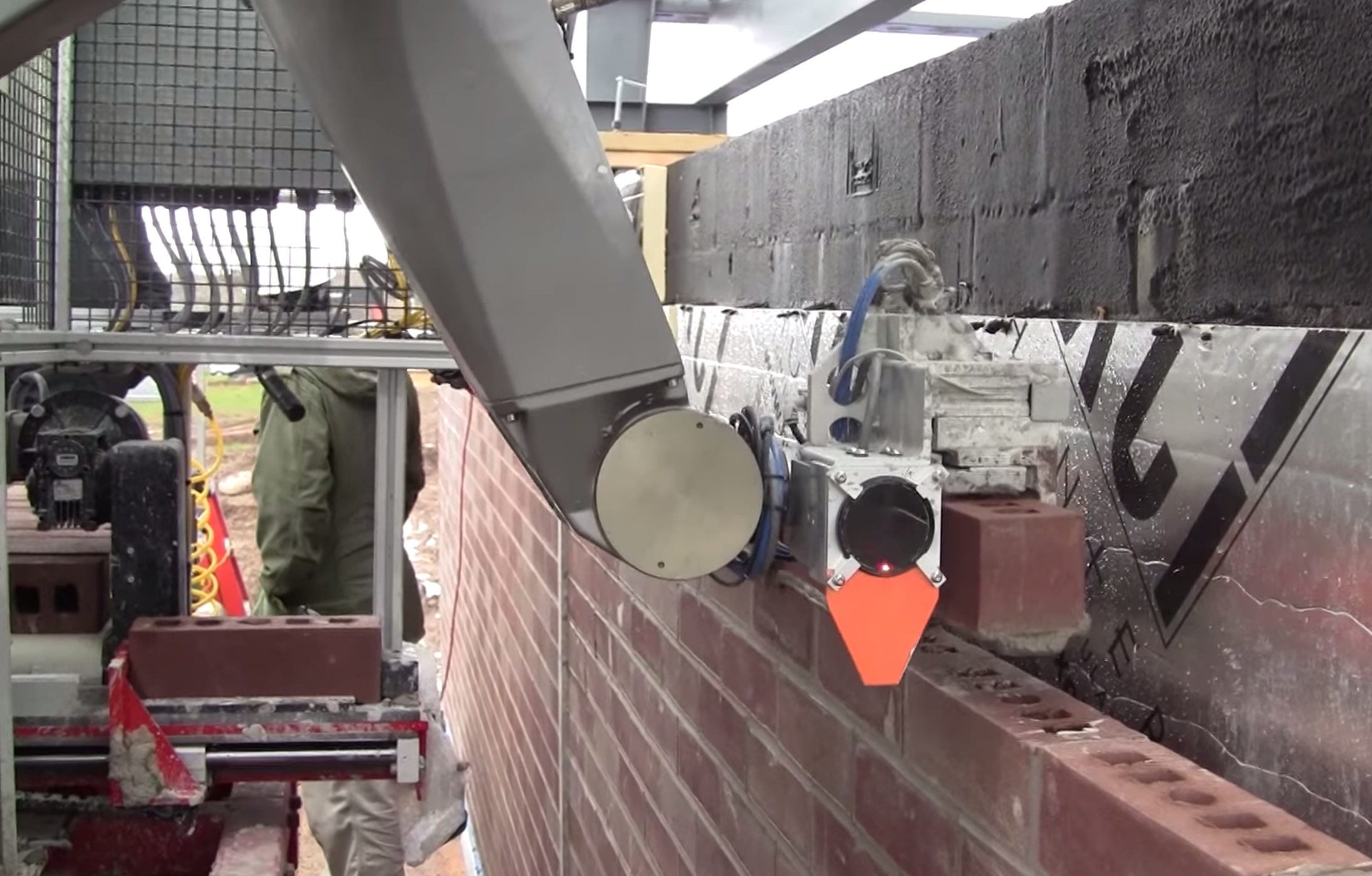We’re watching a fascinating video of a robot building a brick wall. But is this 3D printing?
We think it is.
Construction Robotics of New York state market a robot that is capable of building a brick wall. The “SAM System” is equipped with a robot arm, supply of bricks, grout and a laser. The machine is positioned where the wall is to exist and it goes to town applying grout to bricks and laying them in the perfect position each time. Over and over it does this, essentially automating the role of the bricklayer.
The machine seems to do a reasonable job, if you watch the video above. But if you think about it, this is precisely what 3D printers do. They transport raw making material from a supply to its final location, gradually building a complete object.
What’s missing? We’re not completely up on this machine, but we suspect if one were to add a way to interpret arbitrary 3D models to drive the machine’s brick positioning, you’d have a very interesting device. You might also have to develop a way for the machine to move around a build volume, which is different than the linear motion it now seems to use. Perhaps a circular track would suffice?
This approach seems more viable than some of the other approaches for 3D printed buildings, which typically involved extruding liquid concrete or burying the print in sand. Bricks are a cheap building material that can be found anywhere – although one can imagine some differently shaped bricks might be very useful for certain shape geometries.


